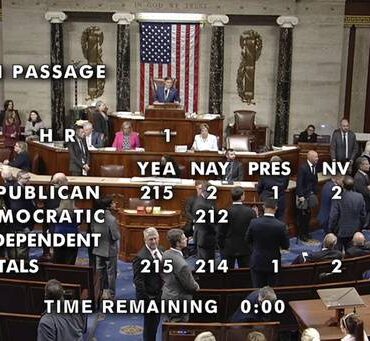Make government matter again

President Marcos’ call for courtesy resignations from Cabinet members reflects a deeper reckoning. The administration suffered a resounding rejection in the midterm elections—especially in senatorial and local races. Voters delivered a clear message: “We do not feel you.”
This is not mere optics—it’s a crisis of relevance. To millions of Filipinos, government feels distant. It is not seen in daily commutes, not felt at the dinner table, not present in the neighborhood. And when it is invisible, it becomes irrelevant. Why support something that gives so little in return?
The way forward is clear: make government matter again. Tangibly. Daily. The delivery of basic services—electricity, water, public transportation—must be reliable and priced fairly. These are not privileges; they are necessities. Yet their quality often depends on corporate interests, not public need. Filipinos are not asking for miracles. They want their burdens acknowledged and eased.
Take traffic. The gridlock on Edsa is not just an inconvenience—it’s an indictment of poor planning. Public transport remains inadequate. Commuters endure the system because they have no choice. Government must give them one. Even simple processes—getting a National Bureau of Investigation clearance or medical certificate—remain difficult and costly. For overseas Filipino workers, such clearances can be financially punishing. Why not partner with private diagnostic centers to offer subsidized services?
The Departments of Health, Migrant Workers, and Labor must act in coordination, not just in principle. The job crisis is urgent. Each year, half a million new graduates enter a labor force with too few openings. If the economy cannot absorb them, it must empower them. Government should convene the country’s leading industrialists and banks to open loan facilities for startups—not only in tech, but in agriculture and essential services. Let the youth build the future they deserve.
Security also demands attention. While foreign policy may have been professionalized, domestic policing lags behind. A modern police force must be responsive, clean, and community rooted. Local governments should be supported to expand citizen-police “Bayanihan” programs. These initiatives already exist—but require scale and support. As for criminality, particularly the drug trade, we do not need a return to violent theatrics. What we need is a focused, top-level dismantling of syndicates—targeting their financiers, chemists, and protectors. Everyone knows who they are. Intelligence is not lacking—only political will.
Leadership must be willing to sacrifice comfort for justice, even if it means going after allies. If criminal networks extend into politics, accountability must follow. There are three years left in this administration. That’s not a long time—but it’s enough to define a legacy. That legacy should not revolve around protecting a dynasty or grooming a successor. It must be about doing what is right, just, and necessary—because the nation deserves no less.
Public service should not preserve privilege; it should restore dignity to the people, from whom all power comes. That restoration starts at the market. Rice and other staples remain painfully unaffordable. Even the President has admitted that government can do more. But beyond promises—like P20-per-kilo rice—there’s been little action. The Department of Agriculture, with all its resources, has failed to act decisively. The rice cartel remains untouched. Who benefits? Not farmers. Not consumers. Only the middlemen and economic predators.
The Department of Trade and Industry must also be held to account. It has failed to check exploitative practices by traders and industrialists. Prices may not drop overnight, but Filipinos expect government to fight for them. They want accountability, not rhetoric. But market manipulators face, at most, a public rebuke—never real consequences. The erosion of faith in government is not rooted in ideology but in lived experience. When government fails to deliver, the people disengage. That is not just a political problem—it is a democratic emergency.
But change is still possible. The remaining years of this presidency must not be wasted on ceremonial appearances or defensive politics. They must be used to build something real, something lasting. Something worthy of the name and history that brought this administration to power—and of the future now at stake. History is watching. So is the nation.
—————-
Richard EM “Ricky” Rivera is the managing director of Impact Publishing

















